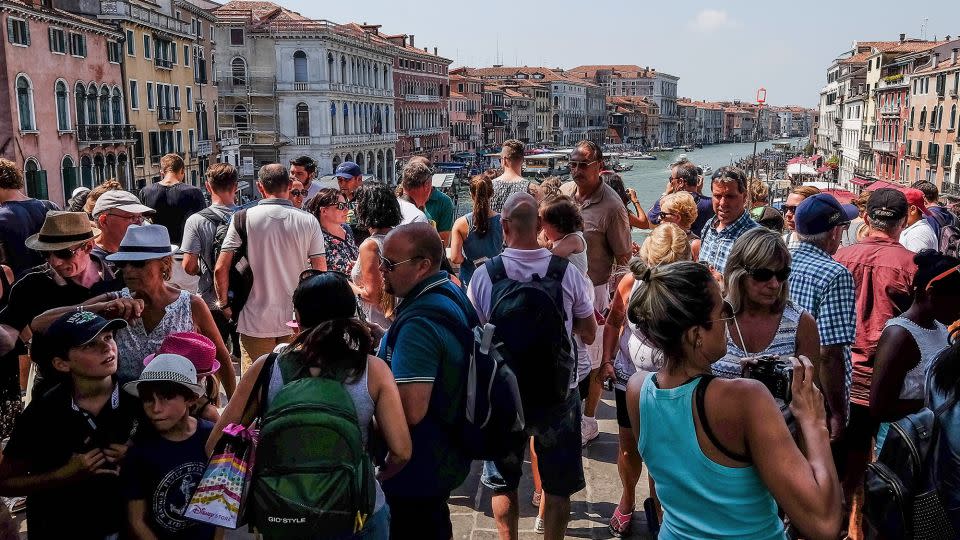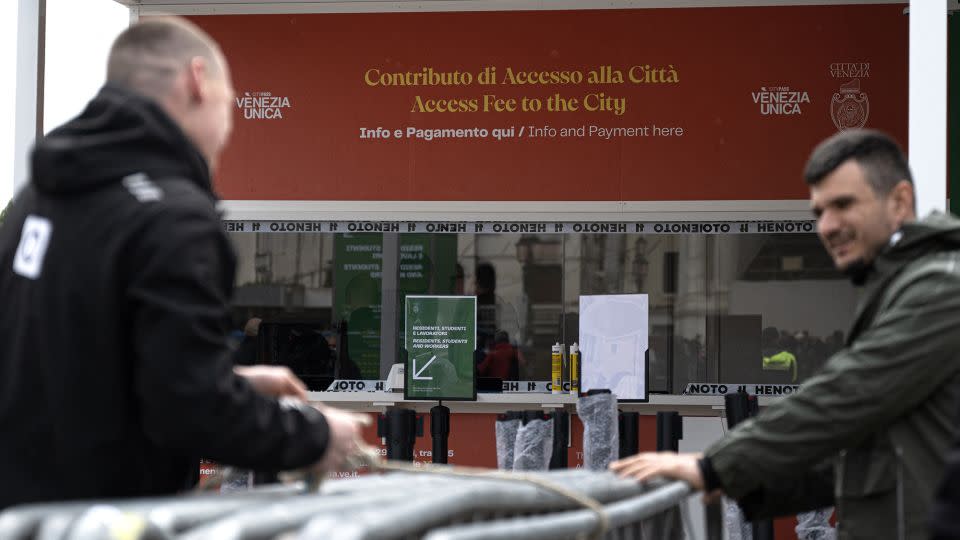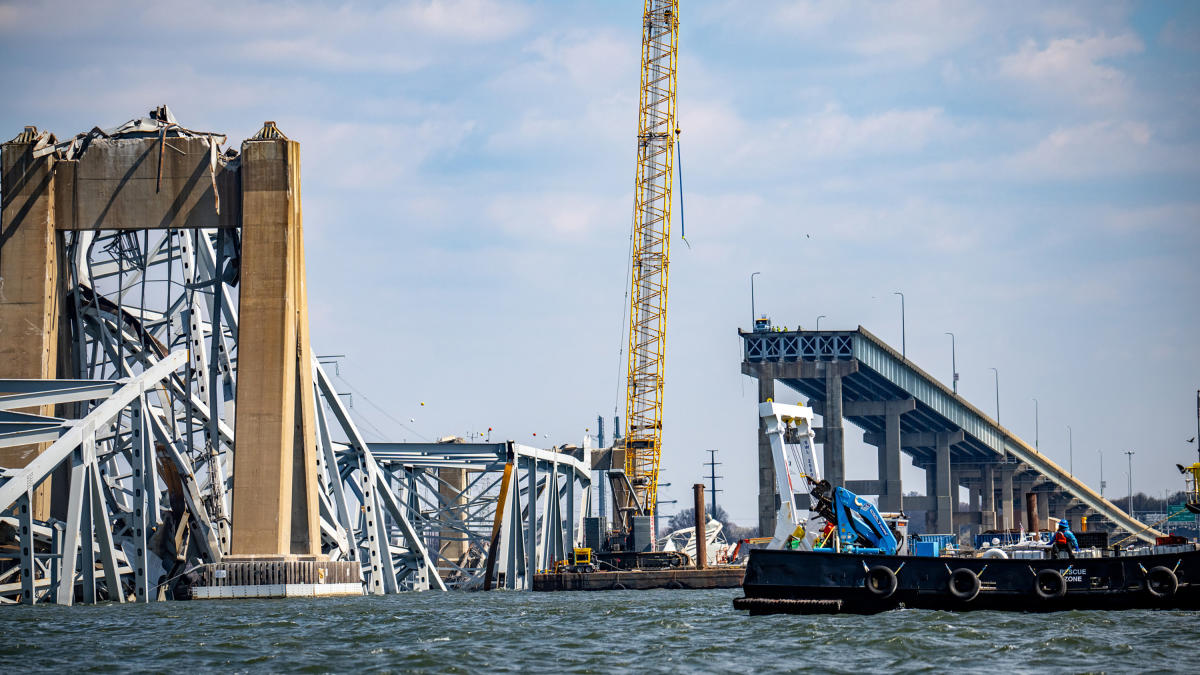
April 25 has long been a historic day in Venice – the date is not just Italy’s Liberation day, but it’s also the feast day of the city’s patron saint, St. Mark.
But now Venice will notch up another dose of history for April 25 – as the day the city becomes the first in the world to charge day-trippers an entry fee.
The long-awaited contributo di accesso (it’s styled as an ‘access contribution’ rather than a ticket) started at 8.a.m. this morning on Thursday. The city council is running a pilot project until mid July to see if it can make the system work.
Anybody visiting Venice as a tourist for the day – except those who live in the local Veneto region – must pay the 5 euro ($5.40) charge if they arrive between 8 a.m. and 4 p.m..
Tourists staying overnight don’t have to pay, as an overnight tax is already added to their accommodation bills. However they too will have to register their presence to request an exemption to the fee. Essentially, anyone entering the city on dates the fee is charged must carry either a ticket or an exemption. The only exceptions are residents of Venice and people who were born there.
A representative from the tourist board told CNN that 82,000 have registered for entry for the first day – a national holiday in Italy – but on average only one in 10 have paid the fee.
According to local Il Gazzettino newspaper, which broke down the figures, only 7,266 people had paid the fee. Everyone else had registered exemptions: over 30,000 hotel guests, 15,000 commuters, 11,000 students and nearly 10,000 Veneto residents.
Problems and protests

The registration scheme has spotlit the housing problems for residents – on the first day alone, 5,300 people had registered to enter the city as second home owners. Venetian residents now number less than 50,000, with tens of thousands squeezed out of the city to make room for second homes and Airbnbs.
The rest of the numbers are made up of school trips and guests of residents.
In preparation for the first day, the council has spent the past few days setting up checkpoints outside the train and bus terminals, with separate lines for residents, exemptions and those paying the fee. There is also a booth outside the train station for arrivals to pay the fee or register an exemption.
The fee will be charged on 29 days between now and July 14. After that, mayor of Venice Luigi Brugnaro has said that they will review how the pilot project has gone before they decide how to continue.

The fee has proved controversial with Venetians who fear that it risks turning the city into a theme park, and dislike the idea of having to register any guests.
The tourist board spokesperson added that a further 80,000 people have registered to enter the city on Friday, and more on Saturday. Generally on national holidays, over 100,000 day-trippers can pour into the beleaguered city – trebling the regular occupancy.
As some locals geared up to protest the introduction of the fee, fully booked trains were pouring into the city from Milan and Rome.
Paolo Brandolisio, who makes oars and forcole (Venice’s famous rowlocks for gondolas) told CNN that he doesn’t think the fee will help the city under siege from overtourism.
“They’re not putting an upper limit for entry, and today 80,000 people have booked – it’ll be a nightmare,” he said.
“What happens if 150,000 people book and they have to let them in? They say that people’s freedom must be respected, but that they must pay. It’s laughable.”
He suggested incentivizing visitors to stay longer, by offering discounts for longer hotels, for example – or simply limiting visitor numbers.
Barbie Latza Nadeau in Rome contributed to this story
For more CNN news and newsletters create an account at CNN.com
EMEA Tribune is not involved in this news article, it is taken from our partners and or from the News Agencies. Copyright and Credit go to the News Agencies, email news@emeatribune.com Follow our WhatsApp verified Channel









